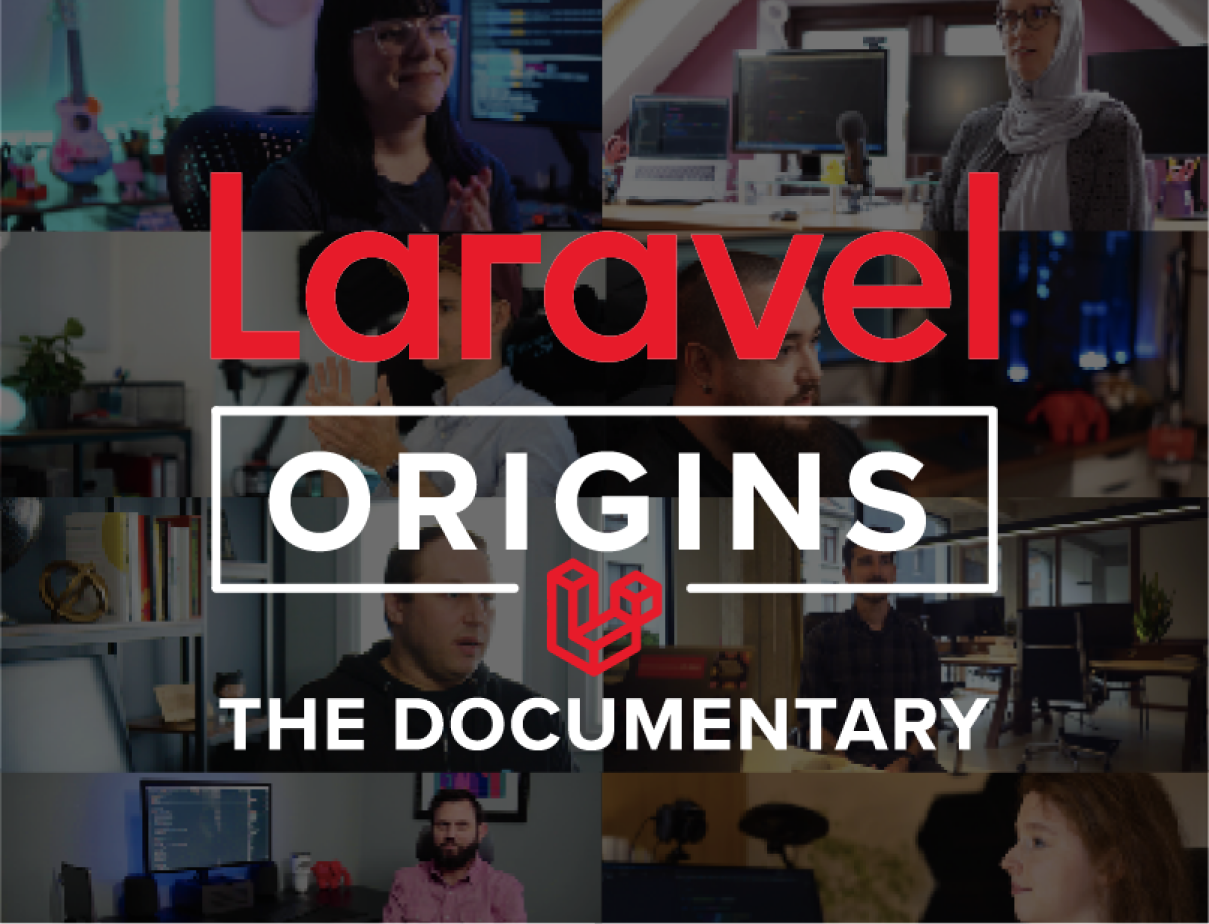State of the Software Developer Nation

In this report
Introduction
If you’ve been in software for a while, there’s no doubt you’ve felt the vibes have shifted.
A few years ago, it felt like the sky was the limit. Remote work? Normal. Big salaries? Absolutely. Freedom to explore projects and build cool stuff? Of course.
Now, efficiency is in. Growth at all costs is out. That means leveraging AI to maintain outputs with smaller teams, fewer side quests, and senior leaders who are back in the weeds. On top of that, developers must directly support company outcomes, or risk becoming sidelined.
The industry is evolving, as AI reshapes the tech landscape. Knowing how to write great code is no longer a differentiator. It’s now an expectation. What sets great devs apart now is how they apply that code: how they understand customers, use AI tools wisely, and create meaningful impact. The bar is rising, but so are the opportunities for those willing to evolve.
So, what does this mean for your career? In a nutshell: You can no longer have it all. Trade-offs are part of the deal now.
You might not get remote work, sky-high pay, unlimited leave, startup-style autonomy, and rock-solid job security. You need to ask yourself: What do I want from a job? What am I willing to trade off to get it?.
The rules may have changed, but there’s still a way to build a career you’re proud of. I hope this report gives you the insights you need to make your next career move with intention.
Tech and career trends
Retrenchments are still a part of 2025's landscape — Hybrid is still the dominant workplace policy as more developers spend time at the office.
Job search trends
Retrenchment trends
Retrenchments are still a part of the local landscape in 2025. Nearly a quarter of developers’ companies had retrenchments. Another 7% of companies have implemented hiring freezes as they seek to control costs.
Larger companies aren't immune to these pressures: Companies with more than 5000 employees are the most likely to have a freeze in place.
Job search timelines
We're seeing a big increase in developers looking to change roles in the next 12 months: Nearly 40% are looking to move in the next 12 months, up from a third last year.
But, developers at larger companies are taking a longer-term view of their next career move: Devs at enterprise companies with more than 1000 employees are most likely to say they want to stay at their companies for the next 5 years.
Reasons for leaving
As the cost of living continues to rise and year-on-year salary growth slows, it’s no surprise that a better salary is still the top reason for leaving a role. However, more money can’t fix a broken culture, a lack of growth or bad management.
Salaries and benchmarking philosophies are reflected in company culture, so developers leaving for a better salary reflect deeper underlying issues.
A developer’s company and career stage also have a major impact on their reason for leaving: Tech leads and devs at larger companies are paying close attention to their company's outlook. On the other hand, devs at startups are more likely to leave for a more exciting mission and tech stack.
Career growth prospects
Developers' career growth confidence is at its lowest point in 4 years. In 2022, 70% of developers agreed that they could continue growing at their current companies. By 2025, this had dropped to 63.6%.
Developers at bigger companies are the most confident in their career growth prospects. This might be a sign that enterprise companies are beginning to challenge startups as the place to be for growth.
Factors for career growth
Developers want a strong company culture and challenging projects for their career growth. Both rank higher than earning potential when it comes to career growth.
A growth-focused culture gives developers opportunities to work on challenging technical problems with support and tight feedback loops.
Developers are drawn to different factors depending on where they are in their careers: Those at larger companies value the stability they bring. On the other hand, those at startups are willing to trade stability for high growth projections.
Seniors and tech leads prioritise culture over money when it comes to their growth.
Salary trends
Salary growth
The majority of developers received a salary increase in their current roles. However, these may not match what they received during the post-COVID tech boom where increases for seniors averaged over 10%. This is due to companies looking to manage headcount and control expenses, but this hasn’t meant widespread freezes in salary increases.
For the majority of developers, their increases have been under 10%, with nearly 1 in 3 developers getting under 5%
Salary by city
Years of experience
Location plays a major role in what developers earn, as each city has its own compensation benchmark. Overall, Cape Town remains the best-paying city for South African developers.
But, more money doesn’t always mean more in your pocket. After adjusting for the cost of living, devs in Johannesburg have 9.7% more buying power than those in the Mother City.
Salary by tech stack
Years of experience
Ruby, Kotlin, and Go still have the highest average salaries, but mastering a niche language isn't the only path to earning more. Python, TypeScript, and Java command the highest average salaries outside of the niche languages, especially for senior developers.
Java and Java frameworks remain some of the most in-demand skills at enterprise companies, and that’s reflected in their salaries. Java developers who work with frameworks like Spring and Spring Boot tend to earn more than the average Java developer throughout their careers.
Remote trends
Remote work policies
Hybrid work is now the dominant workplace policy. However, over the past two years, more companies have been pushing to have their team spend more time in the office.
As a result, the share of fully remote developers has dropped below 40% for the first time since 2022, and the percentage of devs required to be in the office full time has jumped by nearly 30% over the past 12 months. Interestingly, Joburg developers are more likely to have to come to the office.
Work policies for remote companies
Some companies are bucking the slow return to office trend by doubling down on remote work’s promise of working from anywhere in the world.
In 2025, the share of fully remote companies giving their team the chance to work from anywhere in the world passed the 50% mark. These tend to be smaller companies. Larger remote organisations, by contrast, typically want remote team members to be in the same time zone or country. This might be due to larger companies having bigger budgets that can afford the best local talent.
What developers do when working in the office
One of the most common reasons companies give for increasing office time is better collaboration. For many devs, this is not necessarily playing out: 41.4% say there's no difference in what they do at the office versus at home.
However, for about 1 in 4 developers, time in the office involves pair programming and team-building events.
In-office productivity
Most developers don’t feel more productive at the office: In fact, nearly 80% don’t think they’re more productive working in the office.
In-office challenges
So why isn’t the office boosting dev productivity? Developers point to extra distractions and time lost to commuting as their biggest challenges when working at the office.
Companies that want their teams to spend more time at the office need to avoid lost productivity by maximising how developers spend their time in the office. This can involve providing a mix of workspaces for collaboration and deep work, reducing meetings to protect focus time, and prioritising flexibility around core office times.
Tech profile
More women are working in tech in 2025 — Developers reject roles without enough flexibility or growth opportunities.
Demographics
Gender
More women are working in tech in 2025. Over the past 12 months, the share of developers identifying as women increased from 18% to 22%. This means a larger talent pool for companies looking to build a more diverse team. However, gender diversity remains a challenge at the senior and leadership levels.
Most women in tech hold junior positions, while senior and leadership positions are still skewed towards men. Women are also more likely to work in frontend roles compared to men.
Race
The demographics of South African software developers have changed dramatically over the last 20 years. We're slowly starting to see tech better represent the diverse population of South Africa. But it will still take some time for this to fully happen: When looking at developers’ self-reported race, black developers skew towards junior and intermediate roles.
Location
Johannesburg and Cape Town remain the country's largest tech hubs, but they attract different types of developers.
The Mother City is home to more startups, and developers in the city tend to work in smaller, product-driven companies.
Developers in Johannesburg are nearly twice as likely to work for a big corporation. It’s the heart of banking and consulting, making it the ideal city for developers who prefer working in the financial sector or larger enterprises.
Employment profile
Industry
FinTech, SaaS and Consulting are still the largest employers of South African developers. Developers with experience in these industries have a wider range of companies to choose from when looking for their next role.
Education
Tech has long been celebrated for its meritocratic nature, where skills and mindset matter more than formal training. However, the majority of South African developers have a university degree.
For developers without a degree, startups tend to focus less on formal qualifications and more on skills. On the other hand, enterprise companies tend to have stricter degree requirements, and that's reflected in devs at these companies being more likely to have a Bachelor's degree or higher.
Role
Companies are prioritising generalist skillsets in their team, and that’s reflected in nearly a third of developers working in full stack roles. This makes it the most common role in the country.
For developers who want to specialise in either backend or frontend, larger companies typically employ more specialists, as they have larger teams with more diverse skillsets and requirements. Smaller companies, on the other hand, typically look for generalists as they might not have teams that are big enough to accommodate specialisations.
Company size
In the modern economy, every company will need tech and developers. This has meant that more enterprises are turning tech-enabled and have expanded their tech teams. However, smaller companies of fewer than 200 employees still employ nearly half of all developers in South Africa.
At the same time, we’re starting to see more developers work as freelancers or independent contractors. One reason for this uptick may be more developers viewing entrepreneurship as a safer bet than working for an employer.
Startups remain the biggest employers of junior developers: 37% of juniors work at companies with fewer than 50 employees compared to 25.9% of intermediates and 22.4% of seniors.
Work preferences
Career pathway
Developers are shifting how they think about career growth. Over the last 12 months, more developers are looking to specialise, while fewer developers are looking to go into management or start their own companies.
These preferences vary by company size: Enterprise developers are the most likely to prioritise specialisation over going into management positions. Startup developers are most likely to want to become a founder in the next 5 years.
Desired non-monetary benefits
The opportunity to specialise is not the only factor developers weigh up when considering a new role. Remote work remains the top consideration when assessing an offer, followed by growth opportunities and the tech stack they’ll be working with.
After a turbulent couple of years in the tech industry, we're seeing more developers prioritise a company's performance and stability when considering an offer.
Reasons for turning down a role
Flexibility and growth opportunities remain the top two non-negotiables for developers. But there’s a growing third: company reputation.
The proportion of developers who say they’d reject roles due to a poor reputation has jumped from 23.4% to 30.5%. A clear signal that developers are looking beyond the job description to how companies treat their people.
Tech skills
SQL closes in on JavaScript as the most used language — Most devs still aren’t using coding assistants at work.
Top programming languages and frameworks
Most used vs wanted languages
SQL is closing in on JavaScript as the country’s most used language. Only 1.2% separates JavaScript from SQL as AI and data wrangling become a bigger part of developers' day-to-day work.
Go and Rust are still niche languages, but are becoming highly desirable languages among developers in 2025. So what’s behind their rise? Both languages consistently rank high in developer satisfaction and have strong, growing communities.
Most used vs wanted frameworks and libraries
ASP.NET narrowly retains its top spot as developers’ most used framework in 2025, while less than 0.2% separates React and Node.js in second and third place.
When it comes to the most wanted frameworks, Next.js beats React among frontend developers. At the same time, the Java framework Spring Boot has surged in popularity for backend developers.

Want practical data-backed solutions to common hiring challenges?
The 2025 Scaling Tech Teams Playbook is built to help you navigate hiring in this new reality with precision backed by data from 3400+ developers.
Most used cloud platforms
AWS is winning the battle, but the cloud war isn’t over yet. Amazon’s cloud service is the most used cloud platform for a third consecutive year, but is losing ground to Microsoft's Azure.
Azure is the only major provider to see increased use in three consecutive years. It is also the leading cloud platform among companies with 1000-5000 employees, particularly in the Consulting and Data and Analytics industries.
Google Cloud Platform retains its hold on third and saw an increase in use over the past 12 months. This comes after a drop from 11.3% to 9.5% between 2023 and 2024.
AI usage
Coding-assistant use
The majority of developers have used a coding assistant in the past year. That shouldn’t come as a surprise as AI tools continue to evolve rapidly, existing tools becoming more powerful and new players entering the market.
Despite that, on-the-job use remains low. Only 37.9% of developers are using coding assistants at work, and more than 40% of South African developers aren’t using them at all.
Most used coding assistants
GitHub Co-pilot is the most widely used coding assistant in 2025, with more than 70% of developers who use coding assistants relying on it.
Despite the hype surrounding tools like Cursor and v0.dev, less than 1% of South African developers currently use these tools in their workflow.
Most-used IDEs
VS Code and IntelliJ IDEA are the most widely used IDEs in 2025. Overall, traditional IDEs are more popular than fully AI-powered standalone IDEs, like Cursor.
Why? One reason is familiarity: Developers are already using tools like VS Code, so incorporating AI enhances their existing workflow without the need to switch tools.
Another is that these IDEs will also have large plugin ecosystems, community support, and integrations that AI-first IDEs haven’t matched yet.
LLM use
OpenAI is leading the way among LLMs. They are the most widely used in the country, with nearly half of developers listing GPT 4\ as their most used LLM.
So what gives OpenAI’s models an edge? It might be a first-mover advantage. They were one of the first companies going mainstream with generative AI. That early exposure helped build familiarity among developers who now see it as their go-to tool.
Google's Gemini has become the second most used LLM, with nearly a fifth of devs using it over the past 12 months.
38% of developers are looking for work in the next year. Are you?
OfferZen is SA's largest tech job marketplace that takes the guesswork out of job searching. Browse opportunities by role, tech stack and work policy and apply to jobs where you're already a standout match.
Learn moreNot job seeking at the moment? Check out our documentaries
Methodology
OfferZen surveyed developers to find out more about their skills, work experience and job search behaviour. A total of 5402 people took the online survey between 24 September and 8 November 2024. Of these responses, 3423 were counted as valid because they were from developers, or developers who manage other developers, and are currently living in South Africa.
We hosted the survey on Typeform and recruited respondents via emails sent to more than 40 000 software makers in the OfferZen community and social media posts to the public. Data was anonymised in accordance with GDPR guidelines and is housed separately from any and all of OfferZen’s platform data. Percentages may not always add to 100% due to rounding.
Salary in this report refers to gross salary before tax and excludes benefits. Statistical analysis was conducted to verify insights regarding salaries and we have only included claims where we have at least 95% confidence.
About OfferZen
OfferZen is South Africa's largest tech talent marketplace that connects job-seeking software, product, and data professionals with exciting opportunities at over 2000 companies.
When we're not helping companies and tech professionals connect, we're hosting events, sponsoring tech meet-ups, and helping developers share their learnings with the community. We're on a mission to build an inclusive, transparent, and thriving tech ecosystem – one t-shirt, report, job, and event at a time.
This site is protected by reCAPTCHA and the Google Privacy Policy and Terms of Service apply.
Want more insights like this?
Subscribe to OfferZen’s newsletter to get tech insights straight to your inbox!


